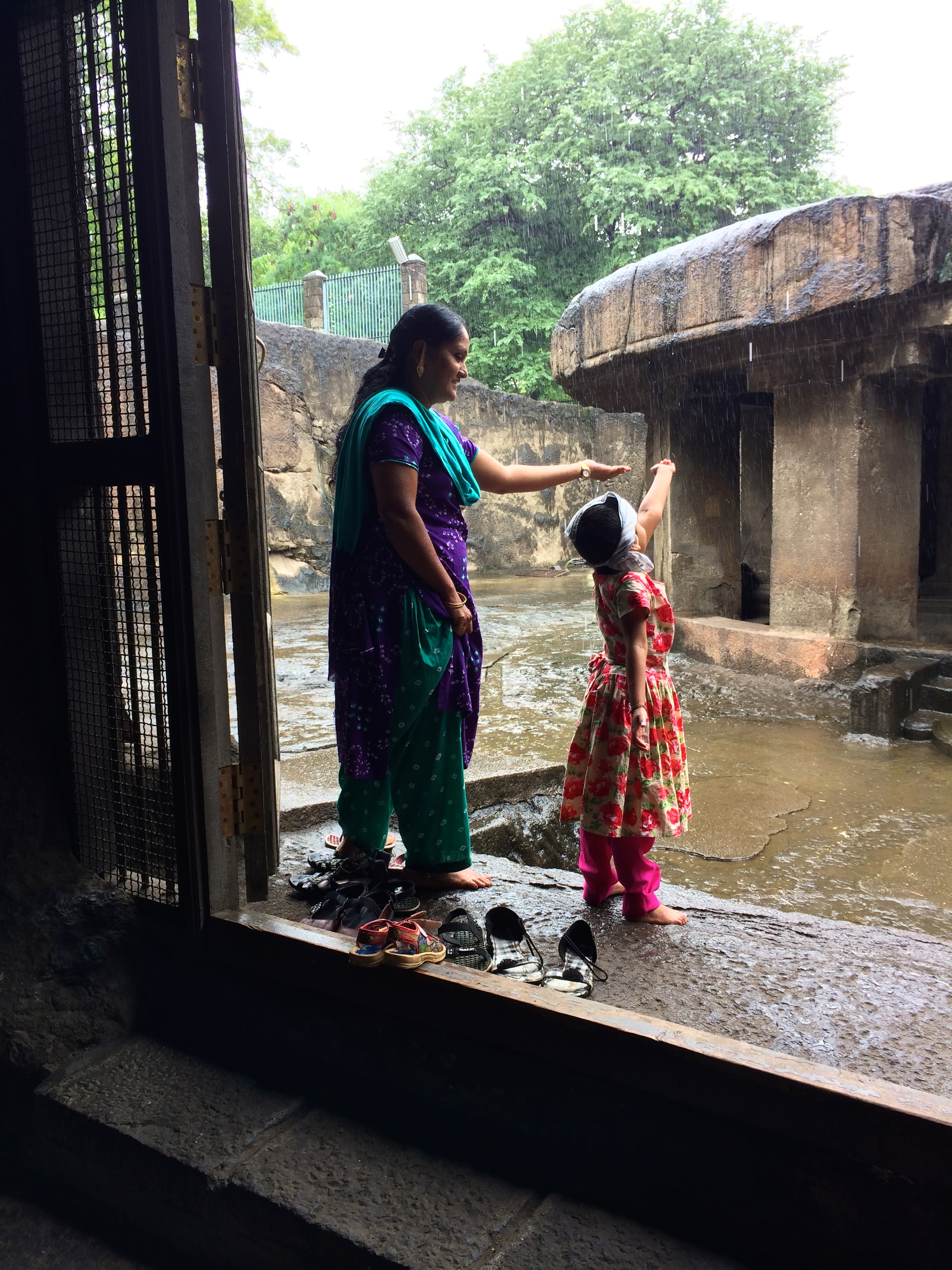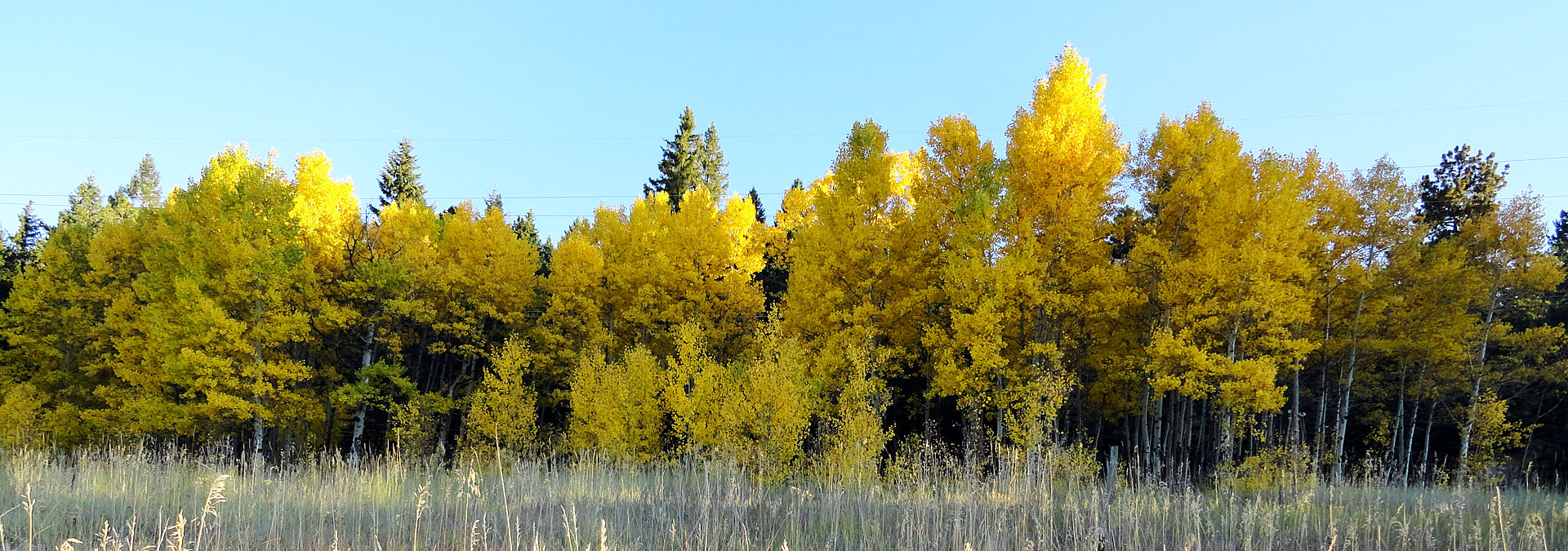
It’s pouring rain and Nana suggests we skip that temple because the steps can be slippery, leaving me to wonder if we will ever see it in this monsoon season. I ask about the weather and he says monsoons end in September. We decide to sightsee a few other places he knows about. If you’ve never seen a rickshaw, or auto rickshaw like the one we were on, it’s a small cart-like vehicle with three wheels, two bench seats one for the driver in front and one for the passengers in back. It’s completely open on the sides (no doors, or seat belts for that matter) and slightly resembles a motorcycle with a roof. My meager research showed that older ones tend to have two-stroke engines (more polluting) and newer ones four-stroke engines that run on CNG (compressed natural gas) which is less polluting. I suspect the ones here are the two-stroke type though I know the Indian government outlawed them in Delhi a few years back because of pollution. I won’t subject you to more of my ranting on the traffic patterns or lack of order on the road, other than to say we had now left the safety of our crumbling curb and stepped into the stream. We became one with the noisy, lurching, chaotic movement of traffic. Carefully smeared with organic essential oils and draped with scarves to block the pollution, we swayed this way and that, clutching our I-phones in a great balancing act as we began taking in another world.
Sitting at a particularly busy intersection, I dug in my bag to retrieve one of the coveted high-protein power bars I had brought from home for situations like this one where we might not find something safe to eat for hours. As I worked my teeth at the packaging I looked across the haze of cars and briefly caught the eye of a young boy carrying plastic flowers through the endless lanes of traffic. I dropped my gaze immediately and steeled myself for the sales pitch. “No!” I said firmly when he came up to my side of the vehicle. “No, flowers, I don’t want any. No.” But he wasn’t hawking the flowers, he was reaching in with his free hand and grabbing for the power bar. Hand to mouth, hand to mouth, he gestured and practically pulled it away. I prayed the light would change as I fumbled with the ridiculous first-world packaging. When it finally opened I made the decision to give him half. I pressed it into his tiny, grimy hand and looked up just as the light changed and there was his sister, palm outstretched reaching in. What could I do? Not selfless, I broke off a piece, stuck it in my mouth and gave the rest to her. The rickshaw lurched into gear and we were gone.
We traveled to a temple that was carved out of a huge stone 1200 years ago. Inside were alters to two Hindu deities, Lord Shiva, the powerful god of death and destruction, and Ganasha the famous remover of obstacles. It’s worth noting that while Hindu’s have a variety of deities they worship, they are considered monotheistic and believe there is only one true and absolute God called Brahma for whom the deities represent his various qualities. I left my shoes at the door and hoped they would be there when I returned. I have come to appreciate a cultural difference here, people consider things that are left out (unattended to) as there for the taking as if they were abandoned, like an inflated notion of finders-keepers. As I was standing in the dank surroundings three teenage girls sidled up and using hand gestures intimated that they wanted us to take a picture of them. We danced around the language barrier and suddenly it became obvious that what they wanted was to take a picture with us. As flattering as it was I couldn’t help but feel like a prize monkey at the zoo, but we happily agreed and pictures were taken all around. As we left the temple, there was a little girl and her mother standing at the entrance with outstretched arms playing with the endless raindrops, so alive and present together in their joy.
After touring through heavy traffic up and over a bridge we entered a very congested area where preparations were being made for the culmination of the Ganasha festival. This is a big event here with huge statutes erected everywhere to honor the popular deity. We snaked up to an outdoor stand and stopped briefly for hot chai. I was never much of a tea drinker and the voice of my doctor was ringing loud in my ears, “Don’t eat at sidewalk stands.” so my enthusiasm was weak, but I rallied and when the young man reached into the rickshaw with a tiny steaming cup I took a sip. It was delicious- hot, creamy, and sweet with a mild spice of cardamom, cinnamon, clove and ginger. 
Next we arrive at a store owned by a friend of Nana’s. It is tiny, cool, and quiet after the hot, bustling street. We walk in and stand looking at shelves packed with hundreds of statutes and figurines of every imaginable deity, and buddha. A robust man scurries out from behind a small counter and offers us chai, remembering the book Three Cups of Tea, I reluctantly sit down. When he brings the steamy cups I notice a few tiny droplets of water on the outside of the cup and I suspect he has rinsed the cups with tap water so I don’t drink it. We end up buying some scarves and I get a beautiful bronze statute of the thinking Buddha. I’ve always been fond of this casual image of the Buddha sitting with one leg bent and his head resting on his knee, it’s an apt representation of my mind in meditation- always thinking. The street here is full of beggars much more so than the area near the Institute and I walk with purpose as we head out the door. We take our chances on the safety of the food next door and have lunch then head for our final stop, Dorabjee’s, the only “gourmet European” shop in town which promises such things as gouda cheese and chocolate. As we approach the door I notice a few people sitting on the sidewalk and a little boy, maybe three years old, catches my eye. He is sitting with crossed legs and very upright like a tiny yoga statute. As I walk by I see that he is naked from the waist down and his parents presumably beg nearby. The sight of this baby sitting bare-bottomed on the filthy, wet, muddy sidewalk is just pathetic. I leave my heart there and hurry into the store.
I feel impotent to help or change anything. Each time I leave the apartment I see crumbling infrastructure, trash heaps, people littering with impunity and a lack of conscience, and hunger. And then there are faces that turn to look at me and when I smile they almost always smile back. And we walk on.



